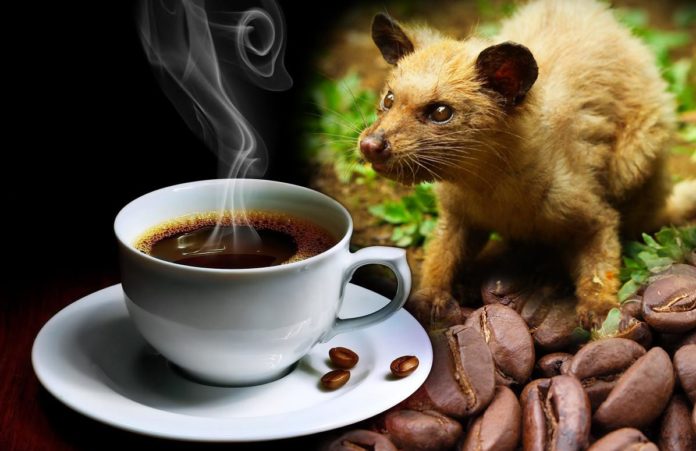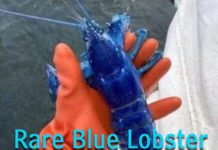.
Holdovers from the days where coffee was more about myths and salesmanship than quality and origin still exist. Examples include “monsooned” coffees, Jamaica Blue Mountain, and the granddaddy of them all—Kopi Luwak.
The Legend has it Kopi Luwak (Indonesian: coffee from [the] Luwak—Civet cat) was discovered in Indonesia under Dutch colonial rule. During that time, native farmers and plantation workers were forbidden from harvesting coffee for their own use, and were left to scrounge around for it.
They soon discovered that the civet cat would eat coffee cherries and pass the seeds—the coffee beans—without digesting them (which, coincidentally, is what happens with the seeds of most fruits, and just so happens to be the evolutionary purpose of most fruits). Upon brewing coffee made from these beans, they discovered it tasted much better than the conventional coffee of the time.

There are two obvious reasons this would be the case: selective picking and thorough “washing”. The civet cat, free to graze on these cherries, would naturally consistently eat only the ripe cherries, while coffee pickers back then were much less discriminating. The beans would also have all the extra fruity bits stripped off by enzymes during digestion, resulting in a thoroughly clean result; leaving fruit pulp or mucilage on the beans can lead to fermentation or mould during drying, something that would have been quite common for regularly processed coffee in the mid-19th century.
What Kopi Luwak was is no big mystery: well-processed beans from uniformly ripe coffee cherries. It’s a near-certainty it would have been appreciably better than what was processed by humans back then, and that’s what has created the myth that still surrounds it today, and what people who peddle it insist still remains the case.
Specialty coffee today is just that: made from as uniformly ripe coffee cherries as humanly possible, and then processed and sorted to be as high quality as possible. Kopi Luwak was just a laborious “shortcut” in a time where coffee was much less understood. Not only that, but modern specialty coffee now showcases the flavours of where it’s from, something Kopi Luwak sellers and supporters (then and now) dismiss in favour of some sort of unknowable animal magic.
The Problems with Kopi Luwak today are serious for so many reasons it’s a miracle there is still a market for it. First of all, more than 80% of all coffee sold as Kopi Luwak today is fake. It hasn’t even been near a civet cat, much less through one. Should you, however, manage to get your hands on the real deal, you’ll be drinking what amounts to nothing short of liquid suffering.
Why? Because civet cats are small animals without voracious appetites. They’re nocturnal, solitary, and live in the rainforest. Harvesting real, free range Kopi Luwak is more or less like hunting for poo truffles, with a much smaller payoff. The obvious thing to do to capitalise on the hype, then, was to industrialise the production.

The animals are caged and force-fed these caffeine-laden coffee cherries all day, every day. Remember how the crux of Kopi Luwak was the uniformly ripe cherries? Not so here. So even if you overlook the fact that this kind of coffee—itself an honest-to-God vegan product—has somehow felt the need to incorporate a bit of animal suffering, you’re not even getting the flavours that set it apart in the first place.
If this wasn’t enough, other, morally bankrupt charlatans have decided to employ different animals as glorified washing machines. Elephants (a bald-faced money grab, unironically sold as Black Ivory, brewed with relentless passion), birds, monkeys, you name it.

In short: If you feel like spending $200-400 per kilo on “real” Kopi Luwak, you’ll be contributing to a cottage industry of animal abuse that serves no purpose, and even if you manage to get the real deal, it won’t be the same flavour that “created the legend”—and even if it was, it’s nothing special by the standards of modern coffee. Just about the only truly authentically harvested Kopi Luwak is a staggering $3,200(!) per kilo. That’s oligarch money.
It’s easy to dismiss Kopi Luwak and its shitty spin-offs as being coffee for assholes, by assholes, but the truth far worse. These days, you’re much better off with coffee made by people who care about their product.





















































